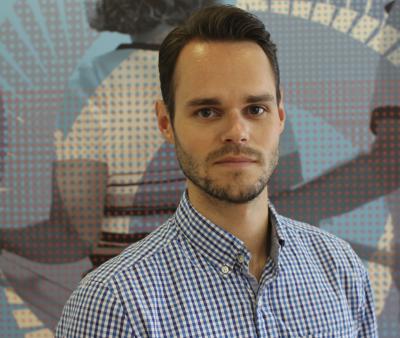Do you feel heard and represented at board level? Who is your chief allied health professional (AHP) within the organisation your work for? Do you have one?

If not, a new resource can be used to start the conversation within the physiotherapy and wider AHP workforce.
Allied health professionals, including physiotherapists, should use the document to open discussion with senior leaders within their organisations about the capacity of their AHP leadership structures.
Investing in chief allied health professional roles: insights from trust executives shares the findings from a project commissioned to gain insights from executives who have a chief AHP within their trust, particularly on the drivers, impacts and challenges of implementing these roles.
It was developed to provide an evidence-based approach to reviewing and improving AHP leadership in trusts, by trust executives and clinicians.
Stuart Palma, NHS England & NHS Improvement head of AHPs (professional leadership) and a physiotherapist, said: ‘Overwhelmingly, trust executives told us that once a chief AHP role was in place, the value and contribution of the workforce was immediate.

'It is vital that we support organisations and systems to review their AHP leadership arrangements, to ensure the transformational benefits of the AHP workforce are fully realised.
‘If you would like support in reviewing the AHP leadership arrangements within your trust, please contact me on stuart.palma@nhs.net for support if you would like to discuss AHP leadership arrangements within your trust, organisation or system.’
The guide also highlights some of the historical and cultural practices present in trusts, that stifle the leadership development of health and care professions other than doctors and nurses. Professionally agnostic leadership roles can at times be ringfenced to certain professions, preventing AHPs from applying, and developing leadership skills required to move into senior roles.
The guide provides
- questions for trusts to consider about the potential benefits and common barriers to developing AHP leadership
- key insights as to how those organisations are benefiting from dedicated chief AHP leadership, as well as the perceived challenges.
Board members said that having a chief AHP in post had raised the profile of the AHP workforce, increasing its engagement and therefore its contribution to trust priorities.
But they recognised the need for further work to challenge the system-wide, taken-for-granted practices that historically may have limited or concealed AHPs’ strategic contributions to health and social care.
The report’s conclusion states:
The insights that board executives provided for this guide draw attention to system-wide, traditional practices that may have limited or concealed the AHP workforce’s strategic contributions to health and care and to trust success.
Chief AHP leadership can transform an organisation and system by providing an engaged, productive and visible workforce that can contribute actively to trust and system priorities.
It is essential that trusts recognise that a sustained cultural shift is needed to remove outdated practices. By thinking differently about how the system provides development and manages talent, we will maximise the contribution of the NHS’s third largest clinical workforce and ensure we make the most of the talent we have, from all professional backgrounds.
Recruiting for the skills required rather than from a specific profession will enable trusts to provide the integrated, multiprofessional working essential for transformative patient-centred care. It will also provide opportunity for AHPs to develop the skills and experience to become valuable members of the senior leadership team.
Importantly, the report recommends that all organisations appoint a chief AHP with a strategic focus, to provide professional leadership for all AHPs within their organisation.
Professionally diverse leadership teams are better equipped to meet the challenges facing the NHS. It is vital that the appropriate AHP leadership structures are in place, to ensure the AHP workforce is fully utilised to meet these challenges.
Number of subscribers: 3